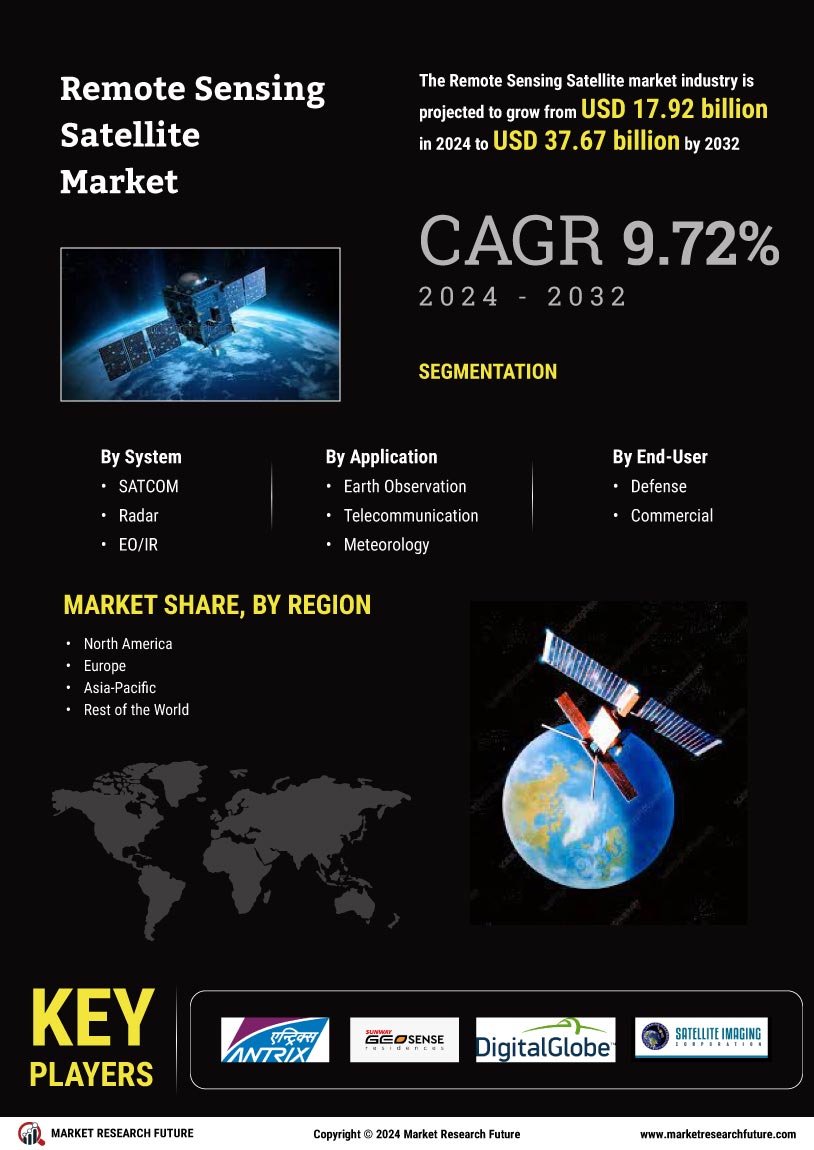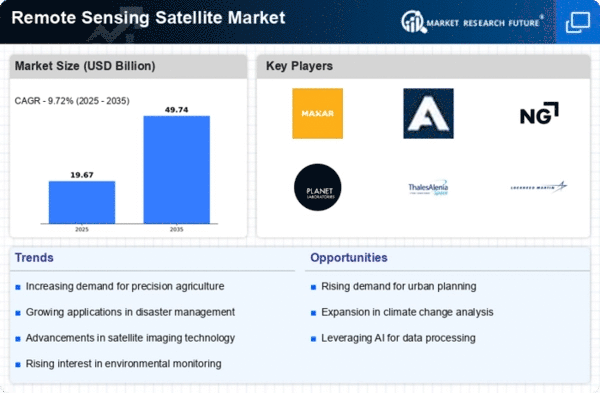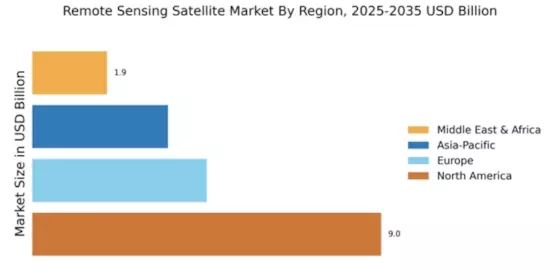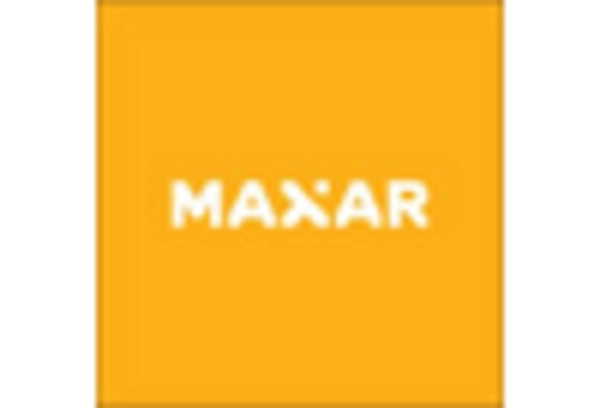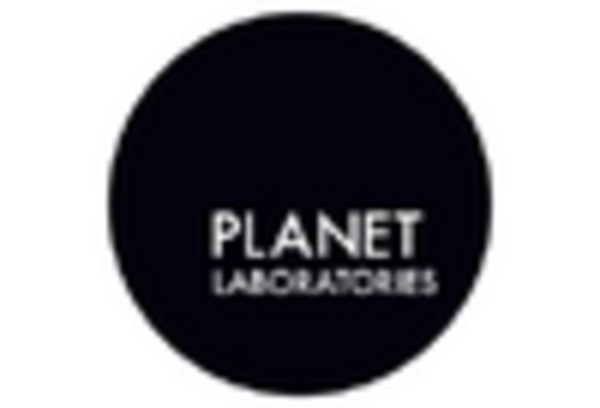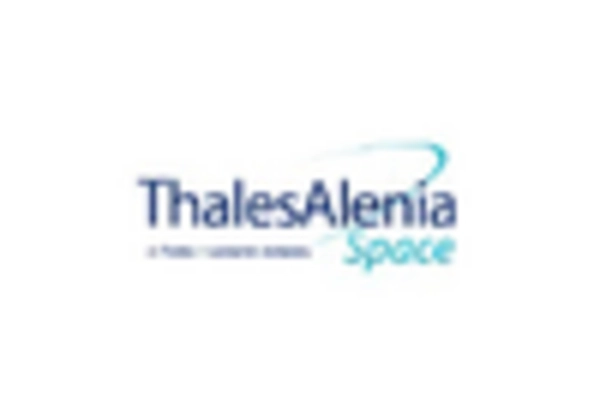Market Growth Projections
The Global Remote Sensing Satellite Industry is poised for substantial growth, with projections indicating a market value of 17.9 USD Billion in 2024 and an anticipated increase to 49.7 USD Billion by 2035. The compound annual growth rate (CAGR) is estimated at 9.72% from 2025 to 2035, reflecting the increasing reliance on satellite technology across various sectors. This growth trajectory underscores the importance of remote sensing in addressing global challenges and enhancing data-driven decision-making.
Rising Environmental Concerns
Heightened awareness of environmental issues propels the Global Remote Sensing Satellite Industry. Remote sensing satellites play a vital role in monitoring climate change, deforestation, and natural disasters. For instance, NASA's Earth Observing System provides critical data for understanding global warming trends. As governments and organizations increasingly prioritize sustainability, the demand for satellite data to inform policies and strategies is likely to rise. This trend suggests a sustained growth trajectory for the market, as stakeholders seek reliable data to address pressing environmental challenges.
Expanding Commercial Applications
The expansion of commercial applications for remote sensing data significantly impacts the Global Remote Sensing Satellite Industry. Industries such as agriculture, mining, and urban planning leverage satellite imagery for precision farming, resource exploration, and infrastructure development. For example, agricultural companies utilize satellite data to optimize crop yields and monitor soil health. This diversification of applications is expected to drive market growth, as businesses increasingly recognize the value of satellite data in enhancing operational efficiency and decision-making.
Increasing Government Investments
Government investments in satellite programs are a crucial driver for the Global Remote Sensing Satellite Industry. Many countries recognize the strategic importance of satellite technology for national security, environmental monitoring, and resource management. For example, the United States government allocates substantial budgets for NASA and NOAA satellite missions. Such investments not only enhance satellite capabilities but also stimulate the market, contributing to a projected compound annual growth rate of 9.72% from 2025 to 2035, reflecting the growing recognition of remote sensing's value.
Advancements in Satellite Technology
Technological advancements in satellite design and functionality significantly influence the Global Remote Sensing Satellite Industry. Innovations such as miniaturization, improved sensors, and enhanced data processing capabilities enable more efficient and cost-effective satellite operations. For example, the deployment of small satellites, or CubeSats, allows for rapid data collection and analysis. These advancements are likely to attract investments and foster growth, with the market anticipated to reach 49.7 USD Billion by 2035, indicating a robust trajectory driven by technological evolution.
Growing Demand for Earth Observation Data
The increasing need for accurate Earth observation data drives the Global Remote Sensing Satellite Industry. Governments and organizations worldwide utilize satellite imagery for various applications, including agriculture, forestry, and disaster management. For instance, the European Space Agency's Copernicus program provides critical data for environmental monitoring. This demand is expected to contribute to the market's growth, with projections indicating a market value of 17.9 USD Billion in 2024, reflecting the essential role of remote sensing in decision-making processes across multiple sectors.
